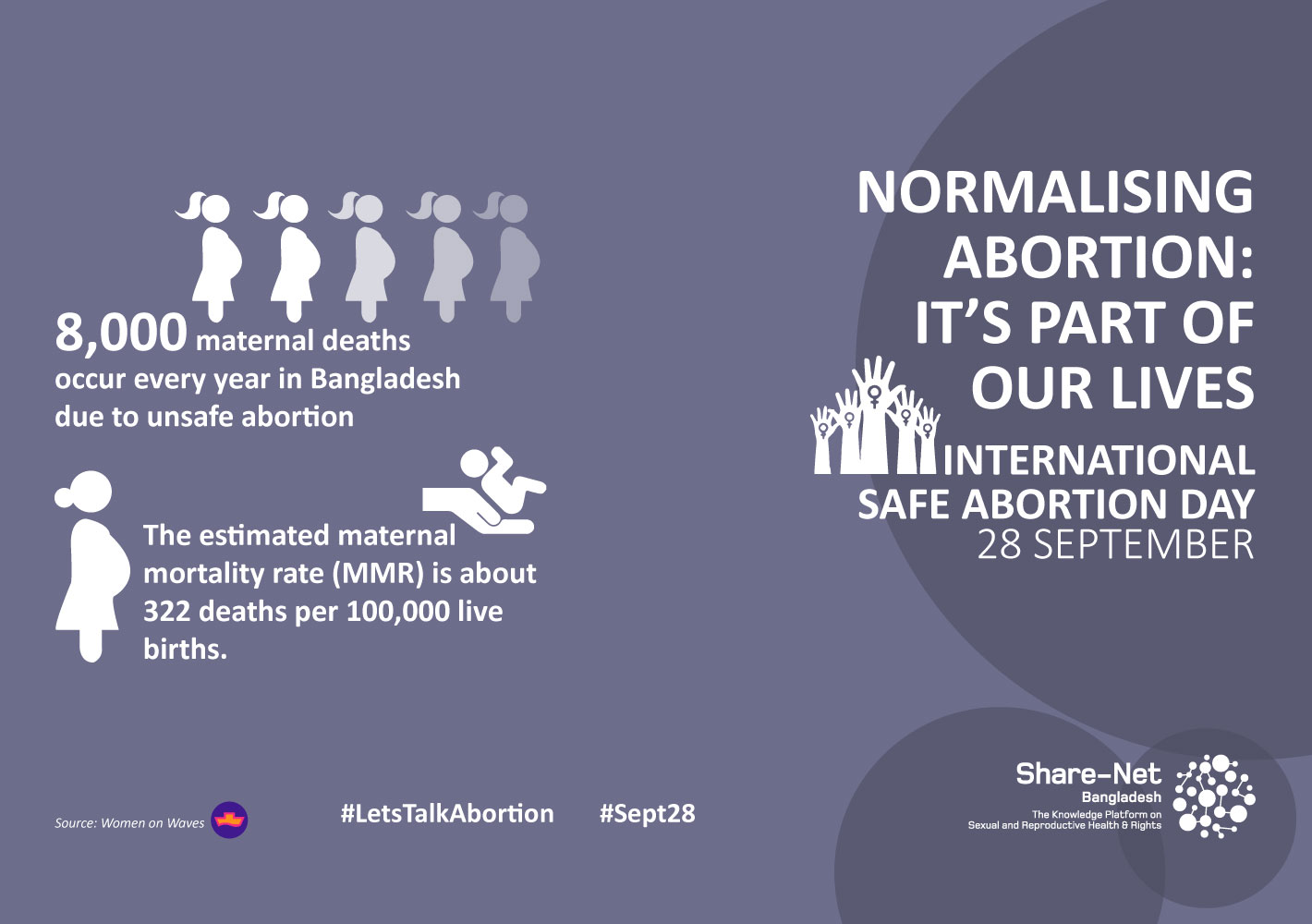Safe Abortion, Save Lives
8,000 maternal deaths occur every year in Bangladesh due to unsafe abortion according to Women On Waves (Wow), a Dutch pro-choice non-profit created to bring reproductive health services to countries with restrictive abortion laws.
Abortion is illegal under the penal code of 1860 in Bangladesh.
However menstrual regulation has been a part of Bangladesh National Family Planning Program since 1979.
It was legalised in Bangladesh for a certain period of time during 1972 for the rape sufferers of the liberation war but blocked soon afterwards, although Bangladesh National Population Policy tried to make abortion legal in 1976 it was not successful.
MR is a a procedure that uses a manual vacuum aspiration or a combination of misoprostol or mifepristone to regulate the menstrual cycle when menstrual regulation is absent for a short period of time. In Bangladesh, it can only be performed with a maximum limit of 10 – 12 weeks after a woman’s last period and without a test to confirm pregnancy according to an article by Asia Safe Abortion Partnership (ASAP).
MR is executed in order to save a woman’s life with no exception made concerning her physical or mental health.
According to a research, in Bangladesh abortion is widespread among unmarried girls below eighteen years, so the restrictive laws and abortion stigmas are major reasons of risky abortions for this segment.
A study by Guttmacher Institute extracted that there was a major decline in MR services from 2010 to 2014 leading to concealed and unsafe abortions.
“The idea of miscarriage is illegal according to section 312 to 316 of the penal code, and abortion is a punishable offence even if it is done with consent,” says Asif Bin Kamal, Barrister-at-Law and Supreme Court Advocate.
Deterring abortion laws are applicable for everyone, the victims of rape and child marriages being no exception.
“In 2015, there were 666 cases of rape – what about women like them?” asks Ayesha Khanam, President of Bangladesh Mahila Parishad. “If professionals, organisations and the government have any respect for human rights, they should reconsider these laws and step forward to help such cases,” says Ayesha in an interview for Dhaka Tribune.
While the constricting laws remain a barrier for safe abortion, there are debates for the other side as well.
“If a woman is pregnant beyond 10 weeks, performing an abortion imposes major health risks,” said AKM Rezaul Haque, Premier Director, Health and Training of Gonoshasthaya Kendra (GK). He believes the laws are defensible in few cases.
Read the articles by clicking the links below:


